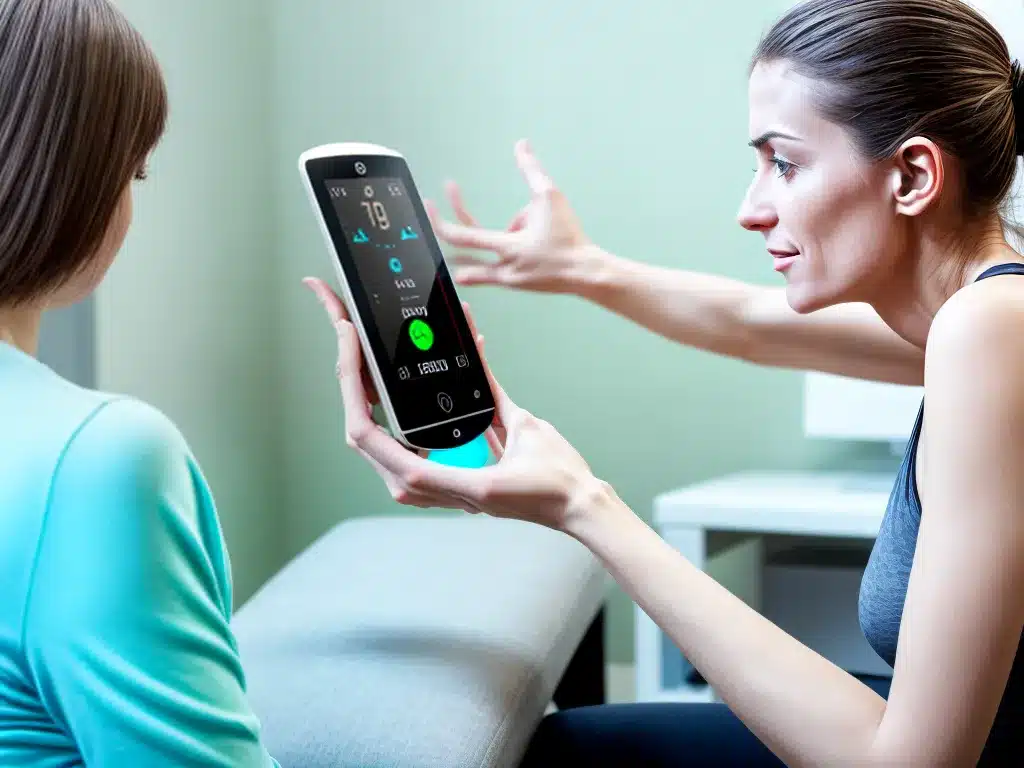
Top 10 IoT Devices to Improve Your Health and Wellness
Introduction
The Internet of Things (IoT) is transforming healthcare and enabling people to take greater control over their health and wellness. As IoT devices become increasingly sophisticated, they allow us to monitor and analyze an expanding range of biometrics. This gives valuable insights into our lifestyle, habits and health conditions. In this article, I explore the top 10 IoT devices that can help improve health and wellness.
1. Smartwatches
Smartwatches like the Apple Watch and Fitbit track steps, heart rate, sleep and more. They enable us to set goals and monitor overall activity levels and exertion. Smartwatches provide at-a-glance access to key biometric data and notifications. This allows us to see trends and make better informed health decisions. Leading brands now include ECG sensors for detecting irregular heart rhythms.
2. Fitness Trackers
Dedicated fitness trackers from companies like Fitbit, Garmin and Xiaomi track activity, calories burned, heart rate and sleep. They help motivate us to move more, provide personalized daily goals and track long-term patterns. Fitness trackers are wearable 24/7 and ideal for monitoring overall physical activity and wellbeing.
3. Blood Pressure Monitors
Blood pressure monitoring is vital for cardiovascular health. IoT connected blood pressure monitors like the Omron HeartGuide and the Nokia Body Cardio Scale transmit readings to your smartphone. This allows you to track and share your blood pressure history with your physician. It also enables earlier intervention for concerning readings.
4. Continuous Glucose Monitors
If you live with diabetes, a continuous glucose monitor (CGM) like the Dexcom G6 can be life changing. It tracks your interstitial glucose levels 24/7 and sends real-time data to your smartphone. This provides unparalleled insight into your glucose variability and trends. A CGM helps you to make informed decisions around food, exercise and medication.
5. Smart Scales
Smart scales provide at-a-glance tracking of key biometric data. Devices from brands like Fitbit, Withings and Garmin measure weight, BMI, body fat percentage, muscle mass and more. The data syncs with your smartphone to monitor long-term weight loss and muscle gain trends. This helps to inform nutrition and workout adjustments.
6. Sleep Trackers
Quality sleep is crucial for overall health. IoT sleep tracking devices like the Withings Sleep Analyzer and Emfit QS monitor sleep stages, duration, snoring and heart rate. The data generated helps you modify sleep hygiene habits and environment to improve sleep quality. It may also reveal underlying conditions like sleep apnea.
7. Air Quality Monitors
Home air quality monitors like Awair track particulate matter, chemicals, humidity and temperature levels. This helps identify potential issues leading to poor indoor air quality and aggravated allergy and asthma symptoms. Air quality monitoring allows you to act to improve your home environment.
8. Smart Thermostats
IoT smart thermostats like the Nest Learning Thermostat optimize home heating and cooling. As well as driving energy efficiency, they can help safeguard health. By maintaining optimal temperature and humidity levels, they can reduce exacerbation of asthma, allergies and susceptibility to molds.
9. UV Monitors
Excess UV exposure raises melanoma and skin cancer risks. IoT UV monitors like the SunSprite attach to your clothing or wearables to track cumulative UV exposure. The associated app lets you know when to apply/reapply sunscreen and seek shade. This enables smarter sun exposure habits.
10. Pill Dispensers
IoT pill dispensers like Hero monitor medication adherence and provide alerts for missed doses. They can dispense pre-filled doses at scheduled intervals. As well as improving medication compliance, they provide peace of mind to caregivers. Increased adherence means improved health outcomes.
Conclusion
Harnessing the power of IoT devices enables continuous health and wellness monitoring. It generates biometrics that provide meaningful insights to allow us to modify behaviors and make better lifestyle choices. As the market matures further, we can expect IoT to revolutionize preventative healthcare and empower people to live their healthiest lives.












